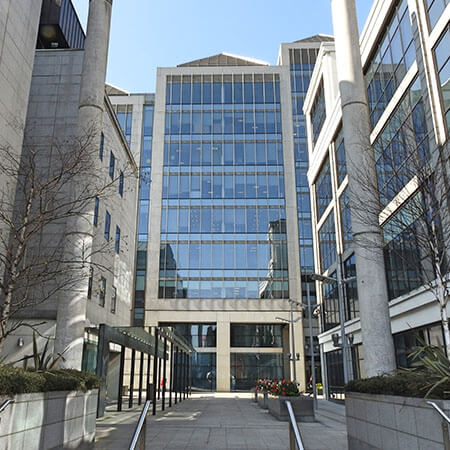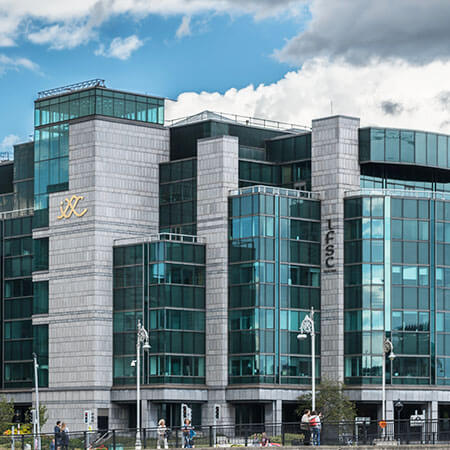Ireland’s business friendly environment positions it as one of Europe’s most accessible locations for establishing and registering a business.
For international entrepreneurs, dedicated visa programmes streamline the relocation process, enabling a fast, efficient route to market entry.
For organisations evaluating investment in Dublin, read on for an outline of key legal and regulatory considerations to facilitate a smooth and compliant entry into the market.
Regulation
Irish regulators, across different sectors, have a strong reputation for excellence. These include:
Ireland actively participates in EU regulatory frameworks, with national authorities representing the country at the European level.
For businesses operating in regulated sectors, specific compliance requirements may apply. Ireland’s Department of Enterprise, Trade and Employment publishes detailed guidance, that is tailored to individual industries, ensuring it is accessible to those who are new to Ireland’s business regulations.
Registering a business in Ireland
Do you need to set up as a sole trader, form a partnership or form a company? See the Companies Registration Office for comprehensive guidance on aligning your structure with your business objectives.
Please note that any company which is incorporated outside Ireland and establishes a branch in the state must be registered with Companies Registration Office (CRO).
Registering for tax
You are requiredto registerfor corporation tax, social insurance and VAT with the Office of the Revenue Commissioners.
Company law requirements
For detailed information on annual returns, statutory filings, and broader company law obligations in Ireland, consult the Companies Registration Office (CRO) and the Office of the Director of Corporate Enforcement (ODCE).
These resources provide essential details to ensure ongoing compliance with Irish corporate governance standards.
Protecting intellectual property
The Intellectual Property Office of Ireland explains the necessary steps to safeguard your innovation and intellectual property rights.
Employment law
Employers operating in Ireland are legally required to uphold a defined set of employment rights and protections for their workforce. These rights are governed by detailed employment legislation. If you intend to employ staff or establish a business with employees, it is essential to understand your legal responsibilities as an employer.

Employment permits and visas
Citizens of EU member states, as well as those from Norway, Iceland, Switzerland, and Liechtenstein, may relocate to Ireland to establish a business or take up employment without the need for a visa or additional immigration permissions. Under the Common Travel Area agreement, British citizens enjoy the same freedom of movement and access.
Anyone else who wishes to live, work or invest in Ireland will require permission to do so.
When hiring internationally, it’s important to understand Ireland’s immigration and employment permit system. Our comprehensive guide to Irish visa pathways offers a strong starting point. In addition, IDA Ireland provides hands-on support to companies navigating the visa and permit process, including assistance in securing ‘Trusted Partner’ status, an accreditation that significantly streamlines employment permit applications. For those requiring a visa to establish a business in Dublin, Ireland’s dedicated Start-up Entrepreneur Programme offers a tailored immigration route designed to accelerate market entry and support long-term business growth.
The Startup Entrepreneur Programme
The Start-Up Entrepreneur Programme – or STEP – is designed for entrepreneurs who wish to relocate to Ireland to found or grow their startup. It provides long-term residency permission for the entrepreneur and their family, with the additional benefit of a work permit for entrepreneur’s spouse also included.
To qualify for STEP, applicants must demonstrate and fulfil the following criteria:
- Be of good character with no criminal convictions
- Have €50,000 in available funding for a sole applicant
- Propose an innovative business with global growth potential
- Be willing to work full-time on the startup
- Ensure the business is headquartered and controlled in Ireland
- Aim to create at least 10 jobs within 3-4 years
For startups with multiple co-founders seeking residency, each additional applicant must raise €30,000. For example, a team of three (one EU citizen and two non-EU citizens) must secure at least €80,000 in funding.
The €50,000 (or more, depending on the number of applicants) does not need to come from a single specific source. It can be drawn from the entrepreneur’s own savings, contributions from family or friends, angel investors, venture capital, Enterprise Ireland, or private investors, whether Irish or foreign. This flexible approach makes STEP more accessible than many similar schemes in other countries, which often impose stricter rules on the origin of funds.




